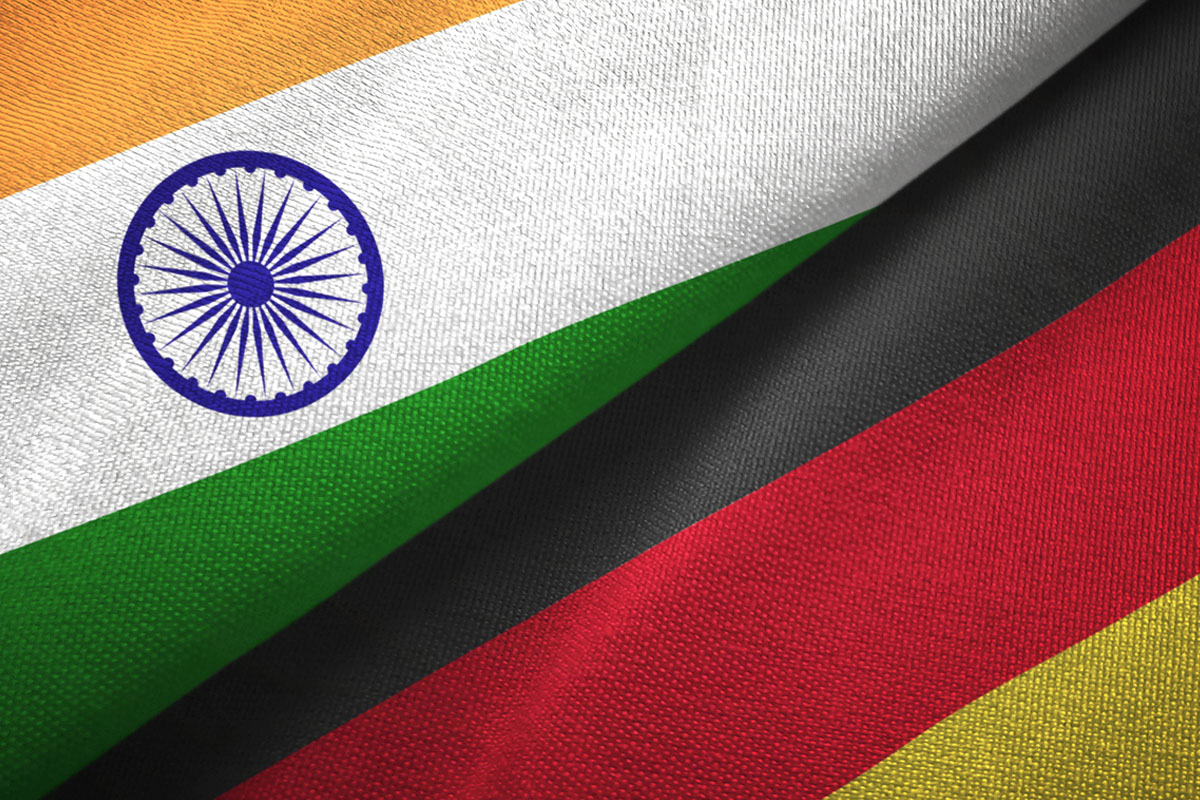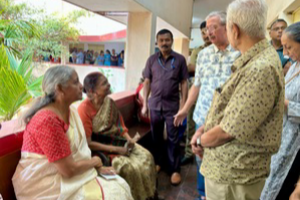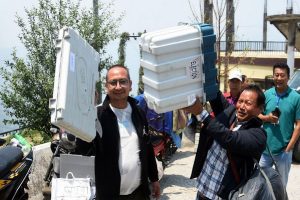India on Friday expressed happiness over the commitment of the new coalition government in Germany for a free and open Indo-Pacific region based on global norms and international laws.
Welcoming the growing interest among India’s European partners, including Germany, to intensify their engagement in the Indo-Pacific region, Foreign Secretary Harsh Vardhan Shringla said, “We are happy to note the commitment of the new coalition government in Germany for a free and open Indo-Pacific region based on global norms and international law.”
“The priorities identified in Germany’s guidelines on the Indo-Pacific, particularly strengthening multilateralism, the rule of law and democracy, climate protection, trade and digitalisation, closely match with our interests,” the Foreign Secretary said at a symposium.
The virtual symposium on “Potential for Indo-European/German cooperation in the Indo-Pacific” was organised to mark the arrival of the German Frigate Bayern in Mumbai by the Observer ResearchFoundation, the National Maritime Foundation and the India Office of the Konrad-Adenauer-Stiftung.
Speaking during the virtual symposium, Tobias Lindner, Minister of State, Federal Foreign Office of Germany, said close cooperation with nations in the Indo-Pacific will be essential to combating the challenge of climate change. “In these endeavours, India is a key partner in the region,” he said. ”EU-India cooperation is not just an option. It is a necessity,” Lindner asserted.
Petra Sigmund, Director-General for Asia and the Pacific at the Federal Foreign Office, Germany said, “One frigate is not a military signal. It is a signal that it is in our national interests that a rules-based international order is protected.”
“We are here to stay in the Indo-Pacific and will keep a close eye on developments in this region,” she asserted.
Sigmund further said that if others are carrying out debt-trap diplomacy, then the strength of “our systemic rivals increases”. In the face of this, Europe must become a stronger, more visible, more determined actor to defend the international order, she stressed.
“We need sensible actors and sensible diplomacy in the Indo-Pacific,” Sigmund said. “We see India active in many parts of the world like Africa. We would like to see more cooperation between Europe and India,” she said.
Peter Rimmele, Resident Representative to India, Konrad-Adenauer-Stiftung said, “Indo-German cooperation will without a doubt lead to success on the basis of our shared democratic values.”
Speaking during the symposium, Priyanka Chaturvedi, Member of Parliament, India, said the Indo-Pacific is turning out to be the pivot of economic and political activities globally.
Ugo Astuto, Ambassador of the European Union to India, said the gains from a closer EU and India economic partnership could have significant positive outcomes for both sides.
Emmanuel Lenain, Ambassador of France to India, said the EU Strategy for the Indo-Pacific is not just about security. It is a positive alternative that prizes sustainability and connectivity.
“We want to work with countries like India to provide alternatives that are green, sustainable and that are in line with our values,” he said.
Among other speakers who participated in the virtual symposium were–Samir Saran, President, ORF, Vice Admiral (Retd) Pradeep Chauhan, Director General, National Maritime Foundation, Walter J Lindner, Ambassador of Germany to India, Roderich Kiesewetter, Member of Parliament, Germany, C Raja Mohan, Visiting Professor, Institute of South Asian Studies, National University of Singapore and Captain Sarabjeet Singh Parmar, Executive Director, National Maritime Foundation.










